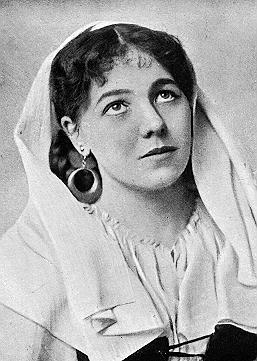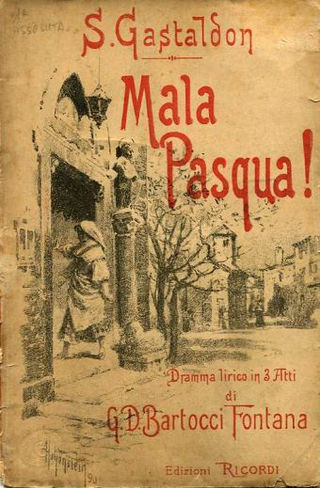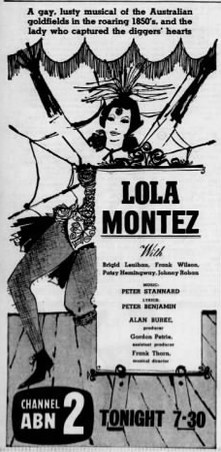Related Research Articles
Marie Elizabeth Collier was an Australian operatic soprano.

Herva Nelli was an Italian and American operatic soprano.
Daniele Barioni was an Italian opera singer who had a prolific career during the 1950s through the 1970s. Early on in his career he rose to fame as a leading tenor at the Metropolitan Opera between 1956 and 1962. Afterwards he worked primarily in opera houses and concerts throughout the United States, although he did make numerous appearances in both Europe and South America as well. Barioni was particularly associated with the operas of Giacomo Puccini and the roles of Turiddu in Pietro Mascagni's Cavalleria rusticana and Alfredo in Giuseppe Verdi's La traviata.

Jacqueline Lisa Dark was an Australian operatic mezzo-soprano who appeared mainly with Australian companies, for a while as a member of Opera Australia. She was known for her voice in leading roles, including world premieres, but also for her stage presence and "a unique sense of comic timing".

Fatal Desire is a 3-D Italian musical melodrama film directed by Carmine Gallone. The film is based on the opera Cavalleria rusticana and stars May Britt, Anthony Quinn, Ettore Manni, and Kerima. For the vocal parts Quinn was dubbed by Tito Gobbi.

Pauline Joran was an American opera singer who lived and performed and mostly in the UK. She was the wife of William Ernest Bush, the first and last Baron de Bush, and mother of Paulise de Bush, who became the youngest baroness in England, known as the "Baby Baroness". She is remembered for creating the role of Saida in Arthur Sullivan's 1898 Savoy opera The Beauty Stone.

Cavalleria rusticana is an opera in one act by Pietro Mascagni to an Italian libretto by Giovanni Targioni-Tozzetti and Guido Menasci, adapted from an 1880 short story of the same name and subsequent play by Giovanni Verga. Considered one of the classic verismo operas, it premiered on 17 May 1890 at the Teatro Costanzi in Rome. Since 1893, it has often been performed in a so-called Cav/Pag double-bill with Pagliacci by Ruggero Leoncavallo.
Gaetano Bardini was an Italian tenor. Bardini gave numerous recitals and was a success in the Czech Republic, releasing his recording of his performances with the Prague Smetana, Brno State Opera, and Prague Chamber orchestras, with conductors Jan Štych and Ino Savini. He was born in Riparbella and died in Cecina at the age of 91.

Mala Pasqua! is an opera in three acts composed by Stanislao Gastaldon to a libretto by Giovanni Domenico Bartocci-Fontana. The libretto is based on Giovanni Verga's play, Cavalleria rusticana which Verga had adapted from his short story of the same name. Mala Pasqua! premiered on 9 April 1890 at the Teatro Costanzi in Rome, six weeks before Pietro Mascagni's opera Cavalleria rusticana which was also based on Verga's play. Bartocci-Fontana's libretto adds some elements that were not in Verga's original and expands on others. The name of the Santuzza character was also changed to Carmela, but the basic plot and setting remain the same. Its title refers to the curse which Carmela places on Turiddu, the lover who had spurned her: "Mala Pasqua a te!". Following its Rome premiere, Mala Pasqua! had a few more performances in Perugia and Lisbon, but it was completely eclipsed by the phenomenal success of Mascagni's opera. After the 1891 Lisbon run it was not heard again until 2010 when it was given a semi-staged performance in Agrigento, Sicily.

"Pardon Miss Westcott!" is a 1959 Australian TV play by the Seven Network as part of drama anthology series Shell Presents. It was a musical set in colonial Australia and was broadcast live. It was Australia's first commissioned for television musical comedy. "Pardon Miss Westcott" aired on 12 December 1959 in Sydney and on 19 December 1959 in Melbourne.
Wuthering Heights is a 1959 Australian television play adapted from Emily Brontë's 1847 novel Wuthering Heights. It was directed by Alan Burke and based on a script by Nigel Kneale which had been adapted by the BBC in 1953 as a TV play starring Richard Todd. It was made at a time when Australian drama production was rare.
Alan Burke was an Australian writer and film director and producer. His credits include the musical Lola Montez.
Prima Donna is a 1959 television play broadcast by the Australian Broadcasting Corporation. It was an adaptation of an opera by Arthur Benjamin and was directed by Alan Burke. It was the first of several operas Burke would direct.
The Telephone is a 1956 Australian television play. It was a filmed version of the opera The Telephone by Menotti. It was the first of many operas broadcast by the ABC. It went for 25 minutes and only featured two people, played by Marie Tysoe and Kevin Mills.
The Marriage of Figaro is a 1960 Australian TV film. It was a filmed version of Mozart's 1786 opera, sung in English.

Cunziria is an 18th-century village in Vizzini, Sicily.

Dragana Radakovic is an operatic soprano, conductor and academic. With a flexible voice, she is able to sing bel canto as well as dramatic soprano roles. She has appeared at major opera houses in title and leading roles, including Bellini's Norma, Verdi's Aida, and Puccini's Turandot.

Lola Montez was a 1962 Australian TV play which was based on the musical of the same name.
"Cavalleria rusticana" is a short story by the Sicilian Giovanni Verga, published in a collection entitled Novelle rusticane in 1883 and presented in dramatic form as a one-act tragedy at Turin in 1884. Pietro Mascagni made this prose play the basis of the verse-libretto of his one-act opera, Cavalleria rusticana (1890).
References
- ↑ "All the TV Programmes". The A.B.C. Weekly. Vol. 21, no. 22. 10 June 1959. p. 33.
- ↑ "Interview with Alan Burke". Archived from the original on 14 March 2016. Retrieved 29 May 2016.
- ↑ "Live Telecast of Opera". Sydney Morning Herald. 8 June 1959. p. 13.
- ↑ Interview with Marie Tysoe
- ↑ "Live Opera on ABC". Sydney Morning Herald. 13 June 1959.